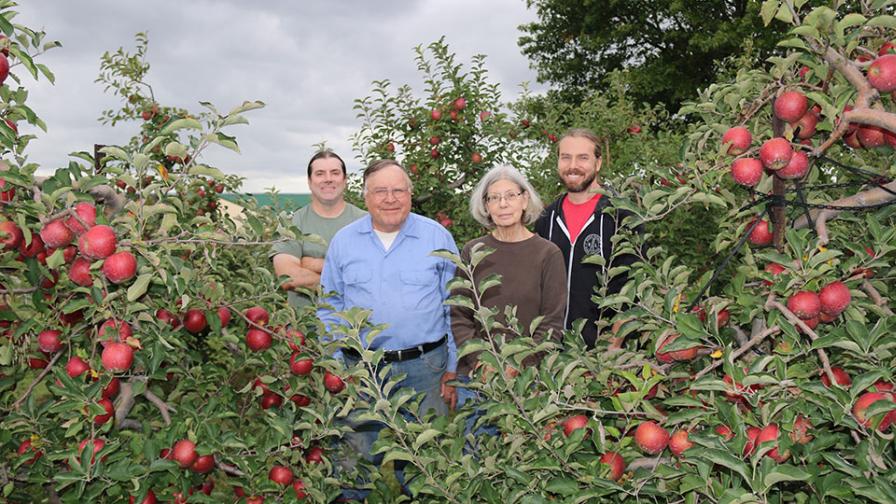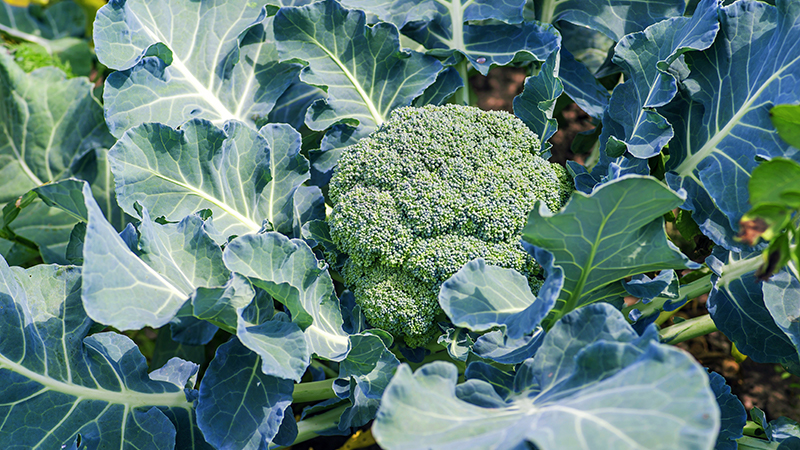Q&A: Why Succession Planning on the Farm Is a Responsibility
Brothers Matt and Chris Vodraska run Rittman Orchards in Doylestown, OH, 45 miles south of Cleveland, OH. Their grower parents, Dale and Peg, now in their mid-70s, purchased the property in 2004. Since then, the diversified farm — 125 acres of tree fruit, wine grapes, berries, and vegetables — has expanded to include Bent Ladder, a winery that Matt, 38, operates. More noteworthy, Chris, 42, and his wife Amanda, the farm’s Marketing Manager, now have a 4-year-old daughter Abbie and 4-month-old son Oliver. With seven Vodraskas and plenty of assets and land in the mix, a succession plan not only became a good idea but a necessity, according to Matt, the Ohio Farm Bureau Federation’s Outstanding Young Farmer in 2019.
I caught up with Matt to have a Q&A session on the subject. Check out the Q&A.
Why was it so important for your family to create a succession plan in 2015?
Matt Vodraska: “It came to a head when I started planning and actually moving forward with the construction of Bent Ladder. We were suddenly not one business but multiple businesses. We took on some debt to build out the winery, so that complicated things, too. We really felt it was past time to sit down with our attorney and our accountant and go over, ‘OK, what’s the best way to protect our assets and transition them to my brother and me.’”
And your parents were on board?
Vodraska: “That’s a complicated question. Obviously, they wanted to see the farm continue. Sometimes it’s harder for an old farmer to let things go than it has to be. But that’s why succession planning can be a difficult conversation sometimes.”
In the end, everything was copacetic?
Vodraska: “It’s responsibilities. When you’re a family business, the older generation has a responsibility to the younger generation to allow it to continue, and the younger generation owes it to the older generation to be able to retire and live out their retirement years however they choose. But the structure has to be in place to allow that to happen. It’s not just some magic potion.”

The Vodraska family (from left): oldest son, Chris, parents Dale and Peg, and younger son, Matt.
Photo by Thomas Skernivitz
Why should fellow growers follow suit?
Vodraska: “We’re seeing so much farmland disappear or not be structured properly to be passed down. Then it’s broken up because maybe one party doesn’t want to farm and the other party does. Or they can’t pay the estate tax and end up having to liquidate the property. Farm Bureau has really stepped up to help educate farmers in how to successfully pass their land to the next generation.”
Still, surveys indicate that, while nearly 100% of U.S. farmers say that succession planning is important, only around 20% are actually following through.
Vodraska: “We’re still seeing early boomers and their generational mindset that things will just work out; people do the right thing; ‘when I die, it will just go automatically to my kids.’ And that’s what they’re kind of stuck in, that framework. And unfortunately, that really ignores the reality of how things work these days. It’s difficult to face mortality and loss of control. And it’s a scary thing, thinking that everything you’ve worked for your entire life will just go to someone else. But that’s what succession planning is. It’s either that, or when you’re gone, it’s gone too.”
Of course, you and your brother and sister-in-law now have a wonderful pair of up-and-comers to hand the baton to when the time comes.
Vodraska: “I joke with my brother; they could have gotten started a little earlier for the next generation of labor. But it is what it is.”










